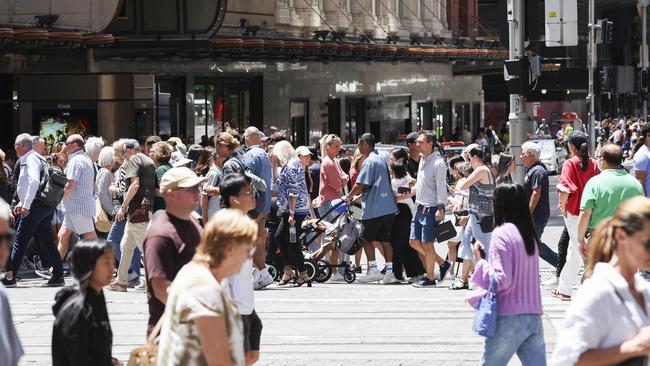Reforms needed to secure more productive future, Productivity Commission says
The recent return to dismal pre-Covid levels of productivity is no cause for complacency, the Productivity Commission says.

The recent return to dismal pre-Covid levels of productivity is no cause for complacency and instead highlights the urgent need for reforms to secure the nation’s long-term prosperity, the Productivity Commission says.
National accounts show labour productivity in the three months to September emerged from its free fall, lifting by 0.9 per cent to record the first improvement since early 2022.
The rise through the recent quarter reflected a weak 0.2 per cent increase in real GDP, matched with a 0.7 per cent drop in the number of hours worked.
The recent uptick has left national productivity only back at 2019 levels, reflecting the inflation and then bursting of a “productivity bubble” triggered by upheavals during the pandemic, the PC’s latest quarterly report says.
Despite the welcome recent recovery, PC deputy chair Alex Robson said the recent bounce in the country’s productivity performance was unlikely to be the start of a return to healthy long-term productivity growth.
“Australia’s productivity returning to 2019 levels is no cause for complacency, as that level came at the end of a decade of relatively weak productivity growth,” Dr Robson said.
“It’s a further sign that the kind of sustainable long-term productivity growth Australia needs will require the type of policy reforms we highlighted in our Advancing Prosperity inquiry report,” he said, referring to the commission’s five-yearly paper released in March, which was ignored by the government.
Productivity jumped sharply during the pandemic, only to then collapse spectacularly from March 2022 as the economy roared back to life. The PC report explains that this rapid rise in fall was unlikely to reflect workers becoming more, or less, productive.
“The Covid-19 pandemic created a ‘productivity bubble’ as workers temporarily moved away from low-productivity sectors, like hospitality, towards higher productivity sectors,” Dr Robson said.
“That bubble burst as workers returned to those lower productivity sectors when pandemic-related restrictions eased. In the wake of this, we are only now seeing labour productivity approach pre-Covid levels,” he said.
The PC’s March report criticised Labor’s workplace reforms, saying the return of multi-employer bargaining was a retrograde step that could lead to more strikes and collusion. Jim Chalmers has since created a statement of expectations for the PC and installed a new chairwoman.
The Reserve Bank has warned a collapse in productivity matched with a rapid rise in wages has led to soaring labour costs which, at current levels, are not consistent with inflation returning to the central bank’s 2-3 per cent target band.
A failure to make the economy more dynamic and competitive could not only lead to higher interest rates, it may also undermine the country’s capacity to pay for the rapidly rising costs of social services, such as aged care, healthcare, the NDIS, and defence.




To join the conversation, please log in. Don't have an account? Register
Join the conversation, you are commenting as Logout